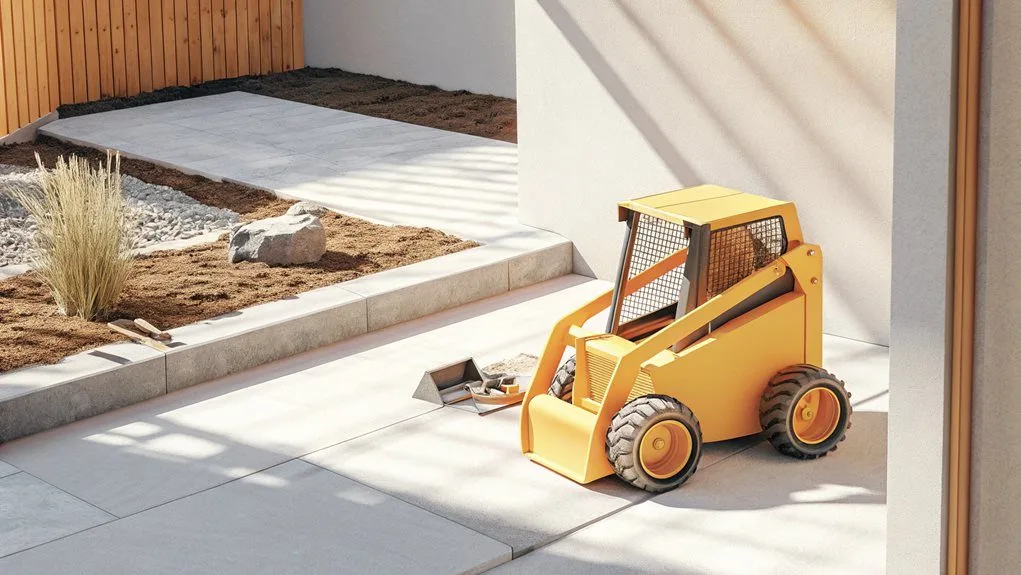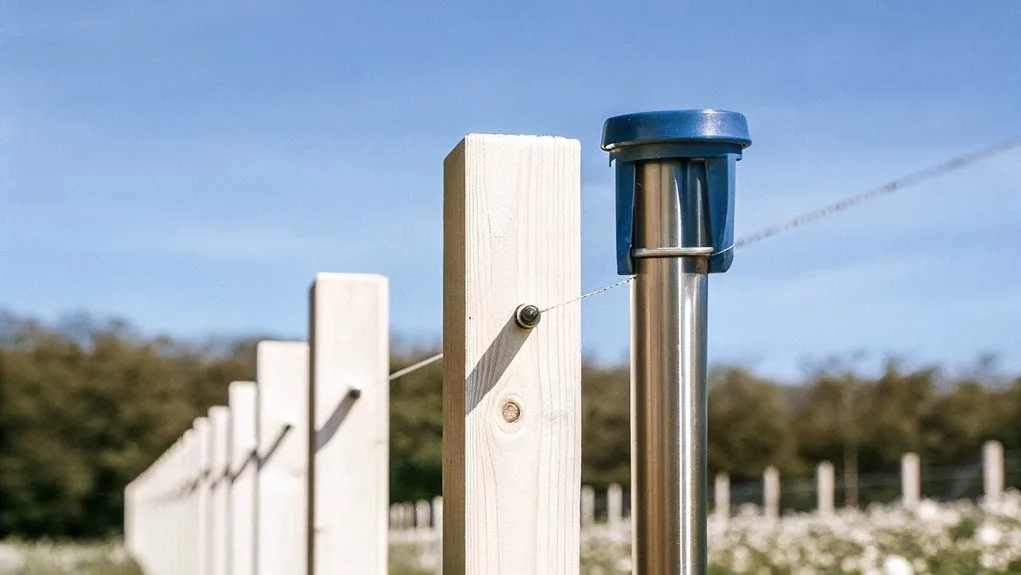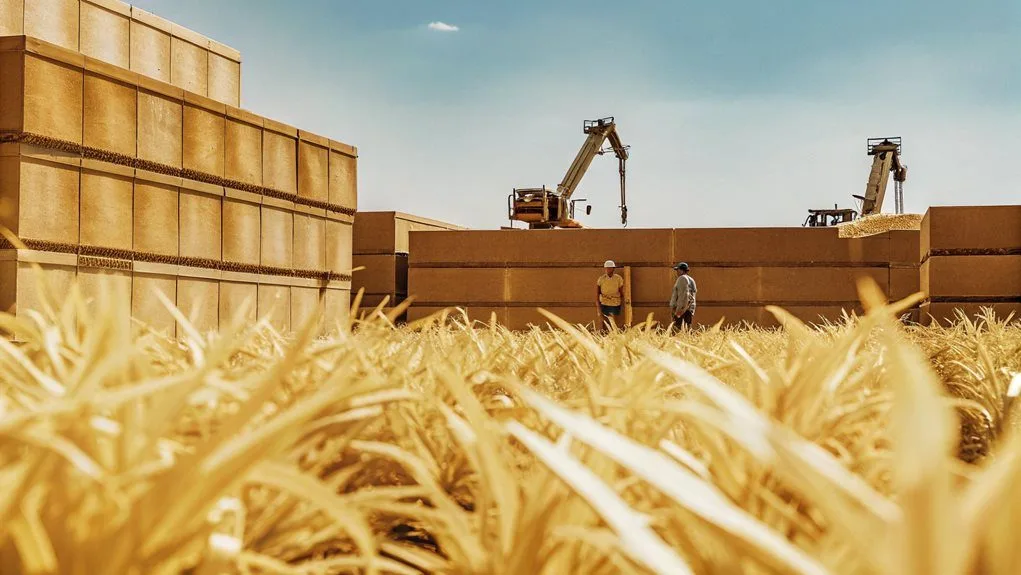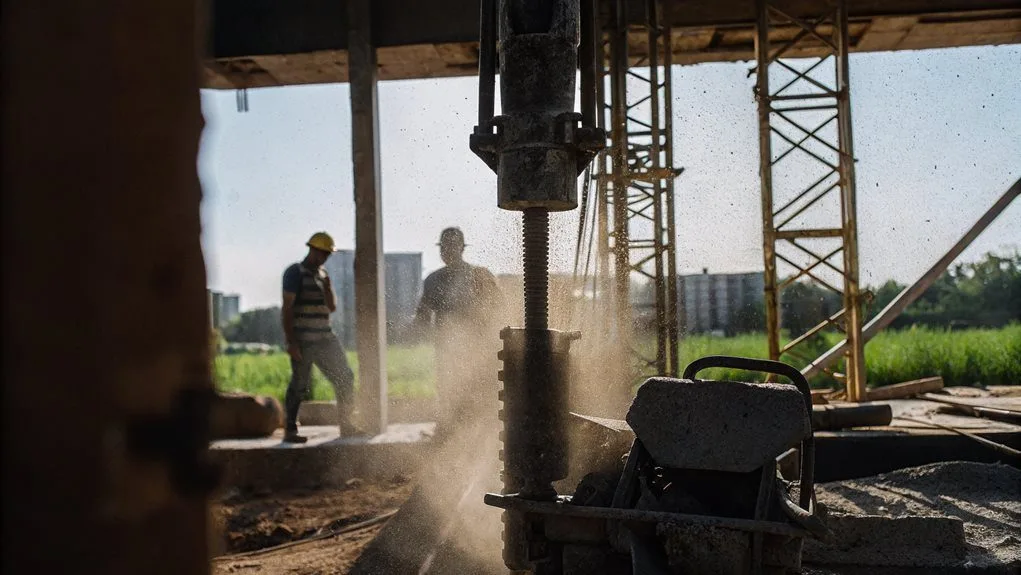When you’re delving into tipper hire costs, short-term projects might feel like a quick and easy fix, but guess what? Long-term rentals often save you some serious cash. Sure, you’ll face daily rates that can swing from R300 to R2,000 during peak seasons, and these fluctuating costs can quickly add up for shorter engagements.
So, do you really want to be shackled to those surprise costs? Bigger projects can drain your wallet quickly if you’re not careful! Stick around, and you’ll see how smart planning and opting for extended rental periods can keep those expenses in cheque and maximise your project’s profitability.
Key Takeaways
- Short-term rentals incur higher daily rates, ranging from R300 to R800, while long-term rentals offer lower per-day costs.
- Long projects benefit from predictable budgeting, helping to avoid surprise costs exceeding R5,000 per day.
- Short-term projects may lead to additional storage costs when equipment is idle, unlike long-term rentals that efficiently utilize the equipment.
- Larger projects generally require more equipment and longer rentals, increasing overall costs compared to shorter, simpler jobs.
- Long-term rentals eliminate maintenance concerns and depreciation, providing a financial advantage over short-term hires.
Understanding Short-Term Tipper Hire Costs
So, what’s the deal with short-term tipper hire costs? Hold on, because it’s a rollercoaster ride through confusion. Rates vary—aren’t they just wonderful? You might pay between R191 and R316 an hour, depending on truck size. Daily? Expect a range of R300 to R800. Short projects can feel like a money pit. Larger trucks guzzle fuel like you at an all-you-can-eat buffet, whilst many rentals don’t even cover maintenance or insurance. Need more bad news? Locations and seasonal demands can skyrocket those prices. Furthermore, remember that when renting a semi-truck, challenges like high upfront costs can complicate your budgeting. Additionally, this market is projected to reach USD 229.14 billion by 2032, intensifying competition and varying pricing structures. Why do we seem to love complicating things? Simply put, if you want a tipper truck and don’t feel like falling into a financial black hole, consider carefully what you really need.
Financial Benefits of Long-Term Tipper Rentals
So, you’re thinking about long-term tipper rentals, huh?
Well, it turns out that by committing for a stretch, you’re looking at some sweet cost savings—lower per-day rates and all that jazz.
Plus, what’s better than having predictable budgeting?
It’s like finding out your coffee shop has a loyalty card—finally, some reward for your commitment! Additionally, with eliminating depreciation costs, renting avoids the significant loss you experience when ownership leads to declining equipment value over time. Furthermore, long-term rentals often come with included maintenance and servicing, providing reliable support throughout the rental period.
Cost Efficiency Over Time
Cost efficiency over time, eh? Hiring a tipper truck sounds straightforward, but let’s be realistic—it’s not always economical.
Certainly, you avoid those substantial upfront costs.
But if you’re planning to keep it long-term, the cumulative hire fees can really mount up.
You might reckon you’re saving money on maintenance, but what about those sneaky storage costs when the truck’s idle?
Plus, hiring doesn’t help with depreciation—you’re just chucking rand away!
And who wants additional financial risk? You could be investing that money elsewhere, couldn’t you?
With cost-effectiveness in mind, it may be more advantageous to reevaluate your project timelines and equipment requirements before proceeding. Additionally, owning a tipper truck can improve profit margins by eliminating recurring costs associated with rentals.
So, unless you only need the truck for a quick job or two, it’s worth pausing for a moment.
Is hiring really your best option? Just food for thought.
Bundled Services Advantages
When you think about long-term tipper rentals, it’s like unwrapping a surprise gift—you might just find something better than what you expected. Lower costs? Check. You dodge that hefty purchase price, along with all those annoying maintenance bills.
Imagine the peace of mind when a breakdown doesn’t mean days lost; you just get a replacement vehicle. How brilliant is that? Furthermore, long-term rentals facilitate efficient removal of waste materials, ensuring your project runs smoothly without delays.
Plus, you’re not tied down by storage costs or dealing with depreciation—talk about a sweet deal!
And let’s be honest: no one loves the red tape of owning equipment.
So, why not let the rental company handle the boring stuff?
All of this means you get to focus on what really matters: getting the job done without losing your sanity.
Predictable Budgeting Benefits
Predictable budgeting benefits are like that mate who always turns up with pizza: they make your life easier. Who doesn’t want to dodge hefty upfront costs of buying a tipper truck?
With long-term rentals, you skip maintenance headaches and avoid the gnawing fear of depreciation—because who’s time to worry about that? You get to adjust your equipment as projects change, keeping storage costs right out the door.
Plus, predictable monthly payments keep your budget on track, making you feel financially savvy. Just think: no surprise expenses popping up like unwanted guests.
Renting can help you keep cash available for other exciting opportunities, like… well, anything but equipment management! Sounds better, right? At least it can’t get worse.
Analyzing the Cost Differences Between Wet and Dry Hire
So, what’s the real difference between wet and dry hire costs?
Well, wet hire has operators included, which sounds brilliant until you see your wallet crying. Sure, those skilled hands can make your project safer and more efficient, but do you really want to pay minimum hourly charges that could rival R2,500 per week? If your project is short, dry hire feels like a godsend—cheaper and you get to flex your machinery skills, assuming you’ve got them. However, it’s important to remember that dry hire requires self-operation, and if you can’t operate that complex beast, then you’re in trouble. Long-term, wet hire may justify the cost if you need someone who actually knows what they’re doing.
Geographic Variations in Tipper Hire Rates
So, you think tipper hire rates are the same everywhere? Spoiler alert: they aren’t!
Whether you’re in a busy city or a quiet country lane, local prices can swing wildly based on demand, fuel costs, and, well, how many hire companies are fighting for your business.
Regional Pricing Differences
Ever wondered why your tipper hire costs can skyrocket just by crossing a city line? Yeah, it’s a head-scratcher. You’d think we’re in a different country!
In urban areas like Johannesburg, you can score a daily rate around R1,200, whilst a stroll into the countryside may set you back R1,500.
Why? It’s all about competition and demand—not really rocket science, right?
Better infrastructure? Lower costs. More construction happening? Higher rates!
It’s almost like they know you’ll pay more in a quiet region.
Local companies? They’re tricky; their prices might seem custom-made just for you.
Fantastic, isn’t it? It’s like a game, but your wallet’s the one losing—trust me, you’re not alone in this pricing puzzle!
Local Market Conditions
Have you ever thought about how tipper hire rates can feel like they’ve been pulled straight from a magician’s hat? One moment you’re in a busy city paying top rand, and the next you’re in the countryside, negotiating like a pro.
Urban areas? They crank up those rates with demand—all those construction companies looking for a reliable truck!
But when the season slows, you can haggle your way to a better deal.
If you’re in a hotspot where operators are as common as coffee shops, you’ve got an advantage.
Yet, in a tight market with limited options, fees can skyrocket to R2,000 per day or more.
It’s like a game of cards; sometimes you’re winning, and other times, well… it’s just not your day.
Currency Impact on Costs
Understanding the currency impact on tipper hire costs is like trying to grasp the rules of a game that keeps changing. One week, you think you’ve got it, and the next? Surprise! Exchange rates can skyrocket costs for international projects.
And let’s not forget regional economic factors; they can turn a simple hire into a wallet-draining event, especially when demand spikes.
You know, in South Africa, you’ll pay a premium in Gauteng—just because.
Ever tried hedging against currency fluctuations? Good luck with that! Trade agreements might help, but you might still find hidden fees lurking around the corner.
Is it all just plain confusing? Yep. But don’t worry, at least you’re not alone in this pricing quagmire!
Strategic Planning for Tipper Hire Selection
Selecting the right tipper hire isn’t just a game of chance—it’s a strategic chess match. You wouldn’t go in blind, right?
Start with clear goals. What’s the timeline? Who needs to be involved?
Trust me, a well-defined scope saves everyone’s sanity.
And don’t forget budgeting—account for those surprise costs that often exceed R5,000 per day; they love crashing the party!
Next up, think about what type of tipper you need.
Payload capacity in tonnes? Tipper bed volume in cubic metres?
Will it handle rough mine roads or construction sites across the Highveld? It matters!
You really want to avoid a broken down heap in the middle of your project.
Plus, make sure your operators have the proper Professional Driving Permits and Code 14 licences—no one wants an inexperienced driver behind the wheel.
With proper planning, you won’t just hire a tipper; you’ll make it work for you!
Assessing Project Size and Complexity in Tipper Rentals
When you’re delving into tipper rentals, you might wonder just how project size and complexity affect your costs, right?
Well, let’s break it down.
Bigger projects mean more equipment and longer rentals—surprise!
And if your project’s a logistical nightmare? Expect to shell out even more rand.
Think about tricky soil or weather conditions, too.
They don’t care about your budget!
Then there’s accessibility; urban projects in cities like Johannesburg or Cape Town might need smaller, pricier tippers to navigate narrow streets and building restrictions.
Conclusion
So, there you have it. Whether you’re tackling a weekend project or a year-long build, you’ve got options. Short-term hires can be sweet for quick fixes—think instant gratification. But long-term rentals? They save you some cash if you’re in it for the long haul. Yeah, it might feel like picking between a cupcake and a wedding cake. Finally, it’s your call. Just remember: choose wisely, or you might find yourself stuck with a tipper, and no idea what to do with it.






